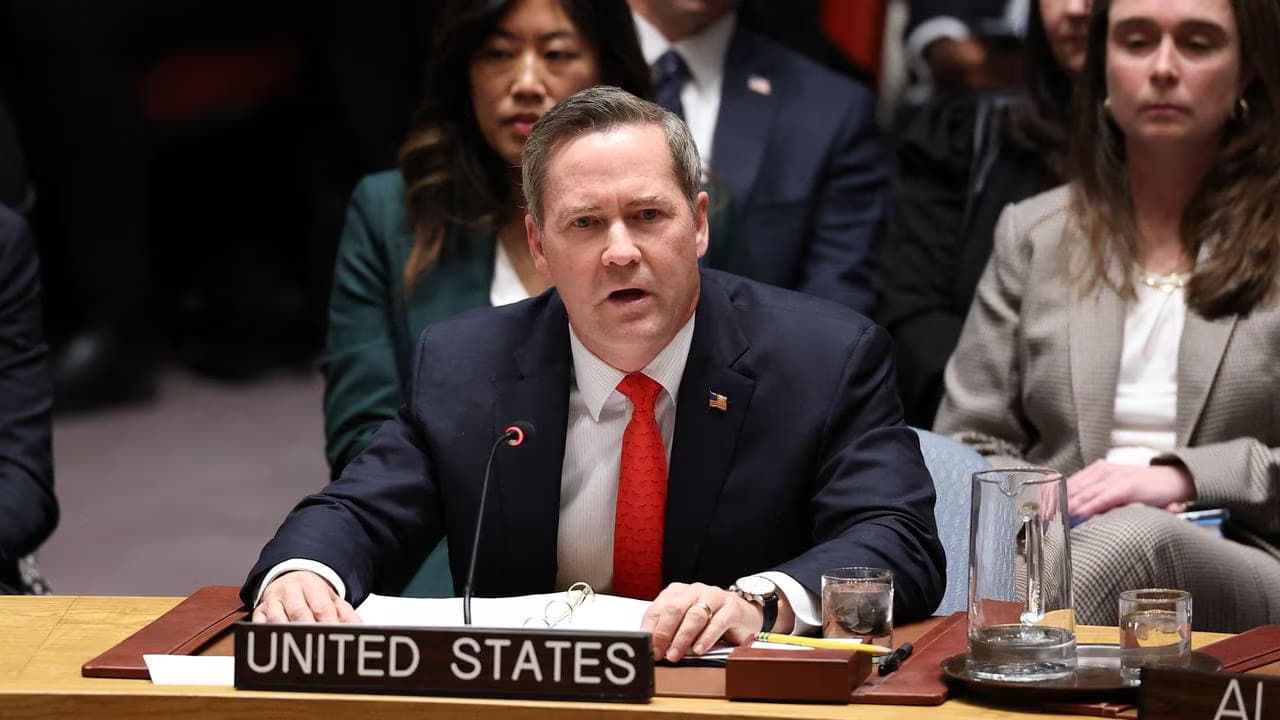We're loading the full news article for you. This includes the article content, images, author information, and related articles.
The UN Security Council has authorised an international force to secure Gaza, endorsing a US-led peace plan. While the move aims to stabilise the region after a two-year conflict, it faces rejection from Hamas and raises complex questions for international and regional stakeholders, including Kenya.

NEW YORK, USA - The United Nations Security Council on Monday, November 17, 2025, adopted a United States-drafted resolution authorising the deployment of an International Stabilisation Force (ISF) in Gaza. The resolution, which passed with 13 votes in favour and abstentions from Russia and China, endorses a 20-point peace plan proposed by US President Donald Trump aimed at ending the two-year war between Israel and Hamas.
The vote, which took place at approximately 5:00 PM New York time (1:00 AM, Tuesday, EAT), is a significant step towards implementing a fragile ceasefire and outlining a post-conflict future for the devastated territory. The resolution provides the international legal authority deemed essential by several Arab and Muslim nations that have expressed interest in contributing troops to the stabilisation force.
Under the newly adopted Resolution 2803, the ISF is given a wide-ranging mandate for an initial two-year period, expiring at the end of 2027. Its core responsibilities include securing Gaza's borders in cooperation with Egypt and Israel, protecting civilians, facilitating humanitarian aid, and overseeing the complete demilitarisation of the Gaza Strip. This involves the permanent decommissioning of weapons from Hamas and other non-state armed groups.
The plan also establishes a transitional governing body, the "Board of Peace," to be chaired by President Trump. This board will oversee Gaza's reconstruction and economic recovery, eventually ceding control to a reformed Palestinian Authority. As the ISF establishes security, Israeli forces are expected to withdraw from Gaza based on agreed-upon milestones linked to the demilitarisation process.
The resolution's passage has elicited varied responses. U.S. Ambassador to the UN, Mike Waltz, hailed the vote as a "historic and constructive resolution" that sets a new course for the Middle East. The Palestinian Authority also welcomed the resolution, a move seen by diplomats as crucial in preventing a Russian veto.
However, Hamas has unequivocally rejected the plan. In a statement, the group said the resolution "imposes an international guardianship mechanism on the Gaza Strip, which our people and their factions reject." Hamas views the mandate to disarm its fighters as stripping the force of neutrality and turning it into "a party to the conflict in favour of the occupation."
Russia and China, while not using their veto power, abstained from the vote, expressing concerns that the resolution does not give the UN a clear role in Gaza's future and grants extensive control to the US-led initiatives. Russian Ambassador Vasily Nebenzya stated the council was giving its blessing to a U.S. initiative "the modalities of which we know nothing about so far."
The Israeli government's position remains complex. While the plan was agreed to, the resolution's reference to a "credible pathway to Palestinian self-determination and statehood" has caused friction within Prime Minister Benjamin Netanyahu's right-wing coalition government. Netanyahu publicly reiterated on Sunday his government's opposition to a Palestinian state.
While there has been no official statement from the Kenyan government on this specific resolution, Kenya's foreign policy on the Israeli-Palestinian conflict has shown shifts. Historically a supporter of the two-state solution, Kenya has recently abstained on some UN votes concerning the conflict, reflecting a complex diplomatic balancing act. In September 2024, President William Ruto called for a permanent ceasefire and reiterated support for a two-state solution at the UN General Assembly. In a November 2025 interview, President Ruto stated Kenya's readiness to contribute to peace processes and humanitarian solutions when called upon.
The African Union (AU), of which Kenya is a key member, has historically maintained strong solidarity with the Palestinian people. While the AU welcomed a ceasefire agreement in January 2025, its previous critiques of US-led plans suggest any stabilisation effort will be closely watched from Addis Ababa. The deployment of an international force in the region could have broad geopolitical implications, potentially influencing security dynamics and diplomatic alignments globally. For East Africa, the stability of the Middle East is crucial for trade, security, and maritime routes. Any escalation or successful stabilisation will have ripple effects felt in Nairobi and across the continent.
Keep the conversation in one place—threads here stay linked to the story and in the forums.
Sign in to start a discussion
Start a conversation about this story and keep it linked here.
Other hot threads
E-sports and Gaming Community in Kenya
Active 9 months ago
The Role of Technology in Modern Agriculture (AgriTech)
Active 9 months ago
Popular Recreational Activities Across Counties
Active 9 months ago
Investing in Youth Sports Development Programs
Active 9 months ago